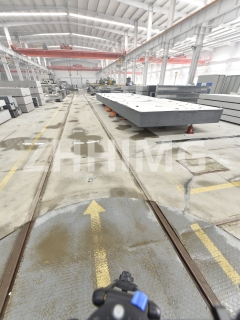Precision Ceramic Components: Advantages and Material Types
Precision ceramic components have become increasingly vital in various industries, including aerospace, electronics, and medical devices. Their unique properties make them ideal for applications requiring high performance and reliability.
Advantages of Precision Ceramic Components
1. High Hardness and Wear Resistance: Ceramics are known for their exceptional hardness, making them resistant to wear and tear. This property is particularly beneficial in applications where components are subjected to friction and abrasion.
2. Thermal Stability: Precision ceramics can withstand extreme temperatures without deforming or losing their structural integrity. This thermal stability is crucial in environments where metal components might fail.
3. Chemical Resistance: Ceramics are inherently resistant to corrosion and chemical degradation. This makes them suitable for use in harsh environments, such as chemical processing and oil and gas industries.
4. Electrical Insulation: Many ceramic materials are excellent electrical insulators, making them ideal for electronic applications where conductivity must be minimized.
5. Lightweight: Compared to metals, ceramics are often lighter, which can lead to reduced overall system weight and improved efficiency in applications like aerospace.
Material Types
1.Alumina (Aluminum Oxide): One of the most commonly used ceramics, alumina offers a balance of strength, hardness, and thermal stability. It is widely used in cutting tools and electronic substrates.
2. Zirconia (Zirconium Dioxide): Known for its toughness and resistance to crack propagation, zirconia is often used in dental applications and high-performance bearings.
3. Silicon Nitride: This material is recognized for its high strength and thermal shock resistance, making it suitable for applications in engines and turbines.
4. Silicon Carbide: With excellent thermal conductivity and hardness, silicon carbide is used in high-temperature applications and as a semiconductor material.
In conclusion, precision ceramic components offer numerous advantages, including durability, thermal stability, and chemical resistance. Understanding the various material types allows industries to select the most suitable ceramics for their specific applications, ensuring optimal performance and longevity.
Post time: Oct-30-2024

